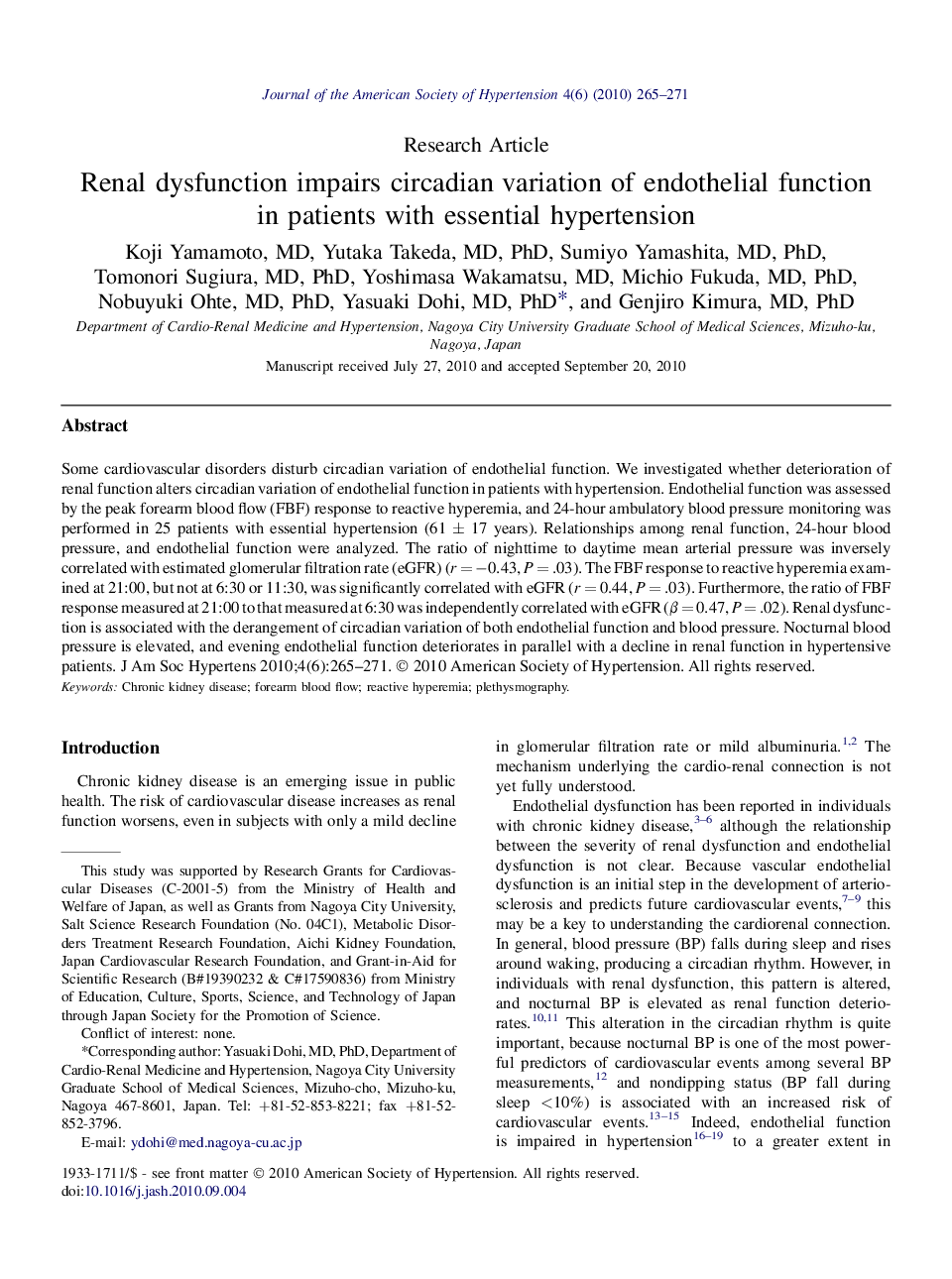| Article ID | Journal | Published Year | Pages | File Type |
|---|---|---|---|---|
| 2957221 | Journal of the American Society of Hypertension | 2010 | 7 Pages |
Some cardiovascular disorders disturb circadian variation of endothelial function. We investigated whether deterioration of renal function alters circadian variation of endothelial function in patients with hypertension. Endothelial function was assessed by the peak forearm blood flow (FBF) response to reactive hyperemia, and 24-hour ambulatory blood pressure monitoring was performed in 25 patients with essential hypertension (61 ± 17 years). Relationships among renal function, 24-hour blood pressure, and endothelial function were analyzed. The ratio of nighttime to daytime mean arterial pressure was inversely correlated with estimated glomerular filtration rate (eGFR) (r = −0.43, P = .03). The FBF response to reactive hyperemia examined at 21:00, but not at 6:30 or 11:30, was significantly correlated with eGFR (r = 0.44, P = .03). Furthermore, the ratio of FBF response measured at 21:00 to that measured at 6:30 was independently correlated with eGFR (β = 0.47, P = .02). Renal dysfunction is associated with the derangement of circadian variation of both endothelial function and blood pressure. Nocturnal blood pressure is elevated, and evening endothelial function deteriorates in parallel with a decline in renal function in hypertensive patients.
